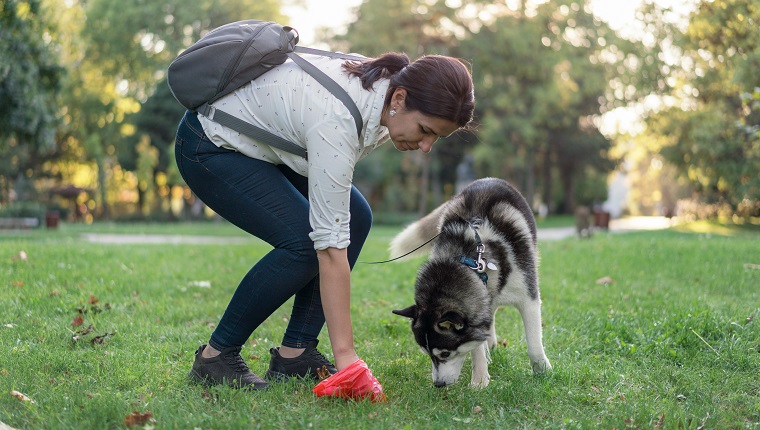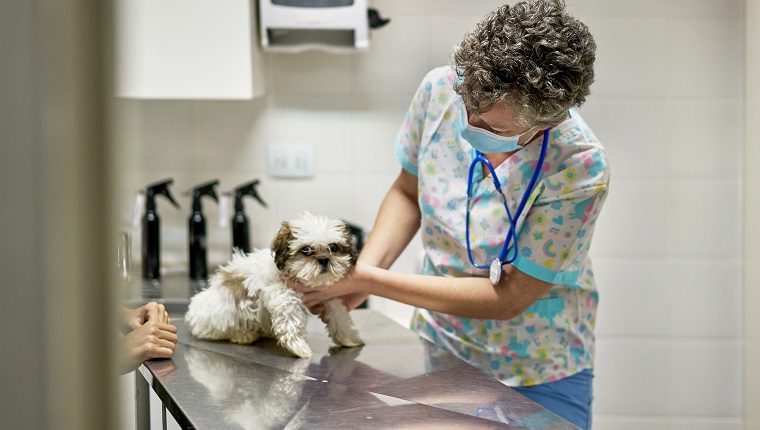Campylobacteriosis in dogs is a bacterial infection that affects the intestines. Dogs often contract it from digesting infected food or feces, with raw meat being a prime cause.
The condition quite frequently appears in puppies under the age of six-months-old. It can also transfer from dogs and other animals to humans.
If you see signs that your dog might be showing symptoms of this condition, then you must consult your veterinarian for a proper diagnosis and course of treatment. Here’s what you should know about the symptoms, causes, and treatments of campylobacteriosis in dogs.
Symptoms Of Campylobacteriosis In Dogs
Campylobacteriosis in dogs can result in a range of symptoms. Some of the most common symptoms include:
Causes Of Campylobacteriosis In Dogs

Campylobacteriosis in dogs primarily results from a dog ingesting infected feces. This is why it can be quite prevalent in dog kennels.
The condition also seems to affect younger puppies more than older dogs, due to the formers’ immune systems not having fully developed.
Along with feces, dogs can also acquire this infection via contaminated water or infected meat, especially raw meat.
Veterinary Treatments
If you suspect that your dog has developed campylobacteriosis, then your veterinarian will most likely want to carry out an examination of your dog’s feces to confirm the condition.
When analyzing your dog’s feces, your vet will monitor the presence of white blood cells, called leukocytes, to determine whether or not your dog has an infection.
When providing treatment, it is important to note that the bacteria is often resistant to popular antibiotics. Your vet might prescribe the drugs tylosin or erythromycin to treat your dog’s infection.
If your vet prescribes medication for your dog, then it is vital that you stick to the recommended frequency and dosage instructions, along with completing the full course of medicine.
Generally, the smartest way to lessen the chances of your dog contracting this infection is to make sure that they stay away from potentially infected poop and to keep them away from possibly contaminated raw meat.
Has your dog ever developed campylobacteriosis? Do you know how they got the infection? Then tell us all about it in the comments below.









